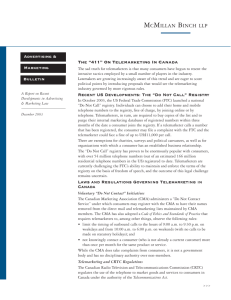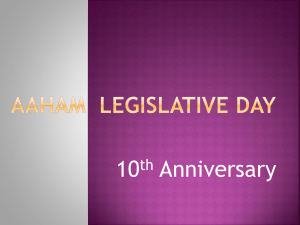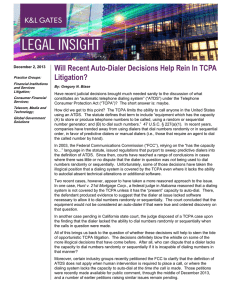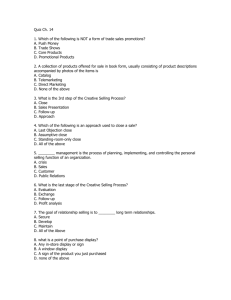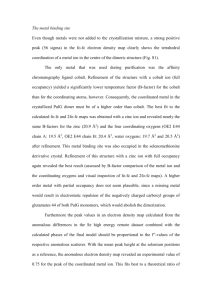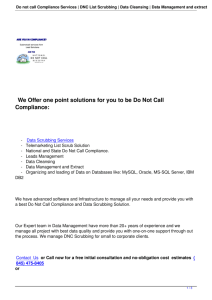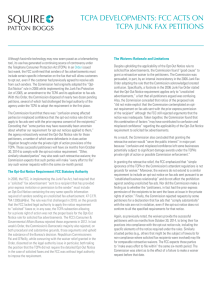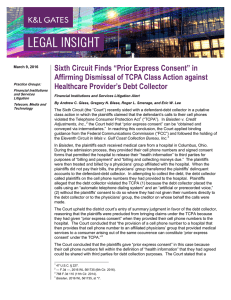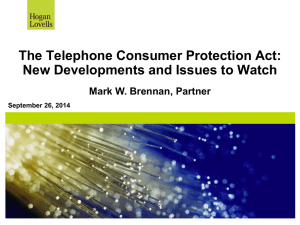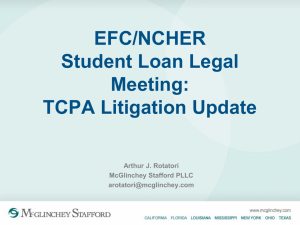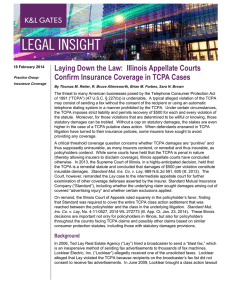Do not call legislation
advertisement
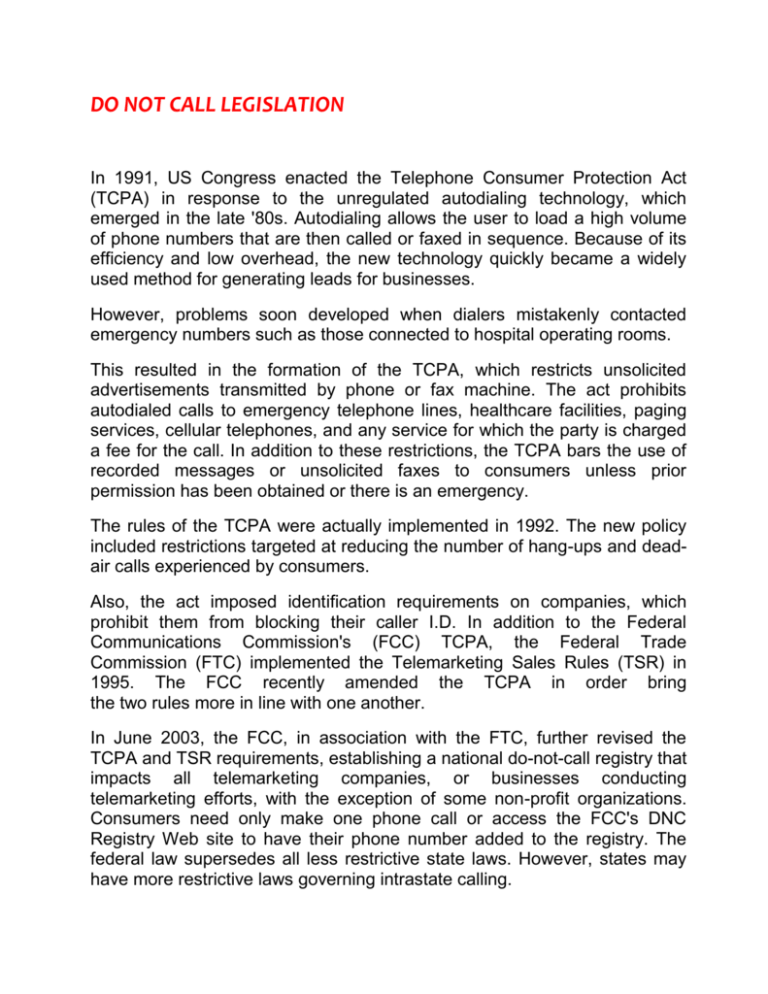
DO NOT CALL LEGISLATION In 1991, US Congress enacted the Telephone Consumer Protection Act (TCPA) in response to the unregulated autodialing technology, which emerged in the late '80s. Autodialing allows the user to load a high volume of phone numbers that are then called or faxed in sequence. Because of its efficiency and low overhead, the new technology quickly became a widely used method for generating leads for businesses. However, problems soon developed when dialers mistakenly contacted emergency numbers such as those connected to hospital operating rooms. This resulted in the formation of the TCPA, which restricts unsolicited advertisements transmitted by phone or fax machine. The act prohibits autodialed calls to emergency telephone lines, healthcare facilities, paging services, cellular telephones, and any service for which the party is charged a fee for the call. In addition to these restrictions, the TCPA bars the use of recorded messages or unsolicited faxes to consumers unless prior permission has been obtained or there is an emergency. The rules of the TCPA were actually implemented in 1992. The new policy included restrictions targeted at reducing the number of hang-ups and deadair calls experienced by consumers. Also, the act imposed identification requirements on companies, which prohibit them from blocking their caller I.D. In addition to the Federal Communications Commission's (FCC) TCPA, the Federal Trade Commission (FTC) implemented the Telemarketing Sales Rules (TSR) in 1995. The FCC recently amended the TCPA in order bring the two rules more in line with one another. In June 2003, the FCC, in association with the FTC, further revised the TCPA and TSR requirements, establishing a national do-not-call registry that impacts all telemarketing companies, or businesses conducting telemarketing efforts, with the exception of some non-profit organizations. Consumers need only make one phone call or access the FCC's DNC Registry Web site to have their phone number added to the registry. The federal law supersedes all less restrictive state laws. However, states may have more restrictive laws governing intrastate calling. Do Not Call legislation becomes Law in Canada The "CMA" sent notice to members announcing that the National Do-notcall service was now law. Legislation that mandates the Canadian Radiotelevision and Telecommunications Commission to set up a national do-notcall service has been passed by both Houses of Parliament and has received royal assent from the Governor General. This is a major victory for the Canadian Marketing Association, which has since 2001 been a strong proponent of a national DNC service that applies to anyone who uses the telephone to market goods and services. CMA successfully lobbied for an exemption in the legislation for calls to existing customers. Equally important, the legislation includes the CMA definition for "existing business relationship". Among other exemptions, the legislation also allows for calls made by or on behalf of a "registered charity" as per the federal Income Tax Act definition. The CRTC is expected to soon initiate the consultation process necessary for formulating more detailed regulations. This process will allow CMA to address some outstanding concerns with the CRTC, including a clear exemption for business-to-business calls. Based on CRTC estimates, we expect the national do-not-call service to be in operation in the summer or fall of 2007. The government knew that a law banning unwanted phone calls would be popular with Canadians, because it called them at home to ask before it was introduced. According to Industry Canada documents obtained through Access to Information, the department spent $14,010 to have the polling company Environics ask 2,000 Canadians about the merits of such a law. Among the questions the pollsters asked: "Which of the following best describes how you feel about receiving unsolicited phone calls: You like to receive them? You tolerate receiving them? They annoy you? You hate receiving them?" Only 1 per cent of respondents said they like to receive unsolicited phone calls. PLEASE NOTE: The Canadian Radio-television and Television Commission has announced that the government-run National Do Not Call List will be up and running on Sept. 30, 2008. At that time, consumers will need to register their telephone number with this program as the Canadian Marketing Association will begin to phase out its telephone suppression list. More information on the CRTC’s National Do Not Call List can be found on their website. Summation: Companies that continue to telemarket to registered do-not-call registered households can be fined up to $15,000 per infraction by companies and $1,500 by individuals. In the US, 60 million Americans had signed on to the registry.Now, its Canada’s turn. How will if affect the consumers ? Eliminate Telemarketing Fraud Protect privacy and prevent unscrupulous telemarketers Stop unauthorized billing by Telemarketers Mandates telemarketers to show caller ID information Assist consumers segregate legitimate telemarketers from fraudulent ones The positive impact to Mail Users More direct mailing opportunities Mail can reach out to your market more effectively Safer method of conveying your message to your potential customers without potential severe ramifications Study proves that 85% prefer to receive financial information ie; bank statement, financial reports by mail Mail is one of the most inexpensive method of communicating your message File: Marketing / 2008-9 Do not call
